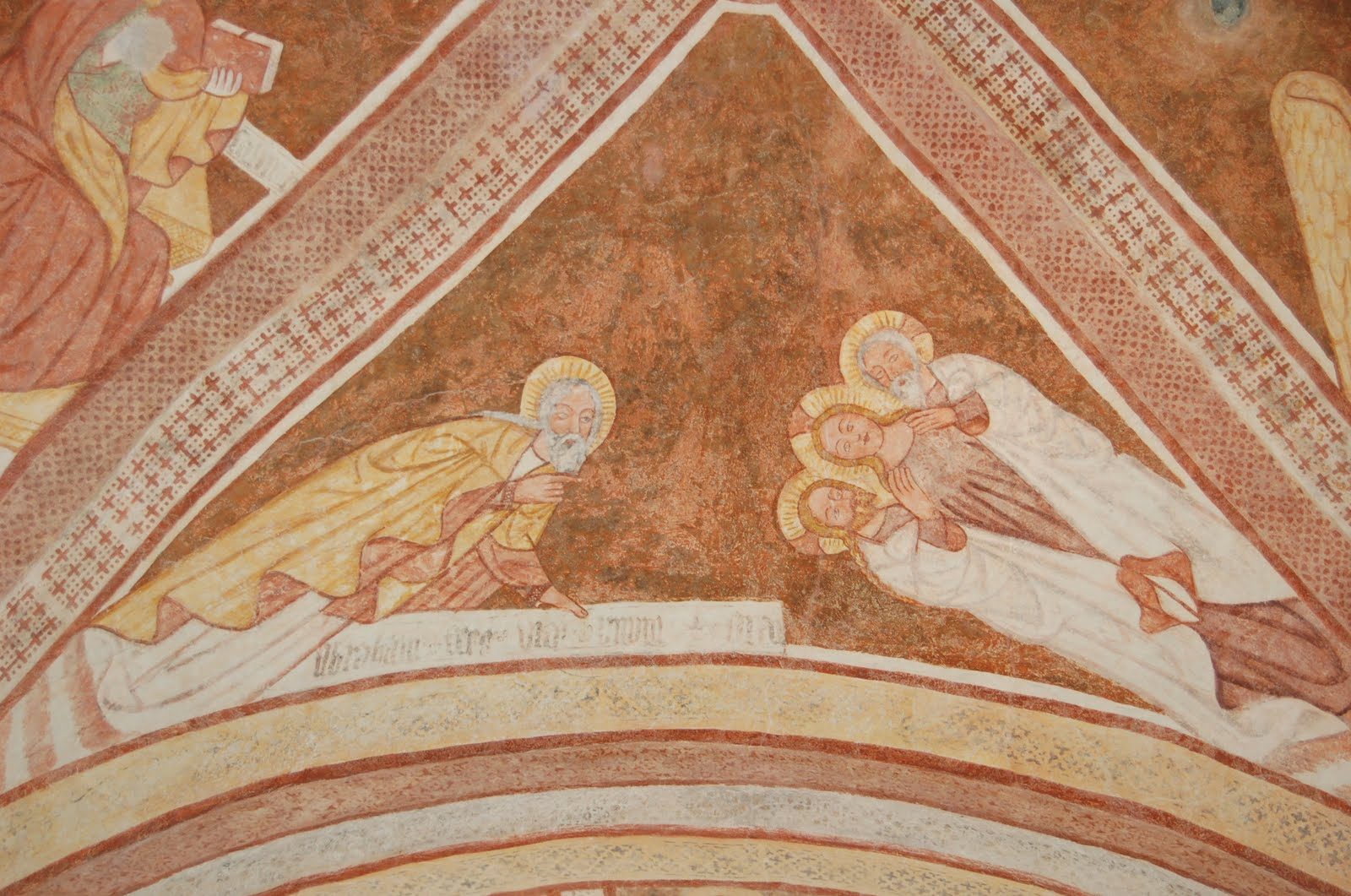For from those divine breasts where it seems God is always sustaining the soul, there flow streams of milk bringing comfort to all the people.
–Teresa of Avila, The Interior Castle, p. 179-180
Recently, a fed-up dad posted a video on Facebook of him trying to eat and drink at a restaurant while wearing a white blanket over his head. He wanted to point out how ridiculous it is that our culture pressures women to entirely cover up their breasts and babies to feed their children.
My son Sam is 18 months old and loves to nurse. Worldwide, this is normal. Developmentally and biologically, this is normal. In the United States today, not so much. (Most babies wean by age one).
Breasts-on-the-loose are scary in our culture. They are objects of sexuality that are never proper to expose in public every day places.
But for my toddler, Sam, breasts are his safe place. He has always just thrown himself sideways knowing I’ll catch him, when he is ready to nurse. He gets tired or upset, and then gets to sink deep into soft mama, who gives sweet, warm milk and the chance to suck, which rights the world again.
In many countries around the world, it is a given for moms to suckle their children as they grow older and fully develop their immune systems, which doesn’t happen until age 4 or 5.
When mothers allow their children to grow out of breastfeeding, on their own terms, kids will wean anywhere from age 2 to age 7, typically. The same with bottles, or thumb-sucking. Kids need to suck for comfort. Weaning before a child is ready is always a sad event for both mom and baby.
The Healing Power of Mama-Milk
I tried to wean my oldest child, Marshall, when he was two, and had tooth decay, due to pressure from a dentist. It didn’t take me long to hear my son’s voice through his tears, reflecting feelings of grief and rejection. I decided then to follow my own instincts about what was best for my son. (It turns out that breastfeeding protects teeth, and that changing diet will work wonders for dental health.)
Marshall started to naturally forget about his “morning mama milk” just after his fifth birthday. It was about that time he began to show the more potent symptoms of Autism Spectrum Disorder. Inflexibility, crying often, and hitting. That was all new, post-weaning. Mama’s milk had been protective.
GAPS (Gut and Psychology Syndrome) author Natasha Campbell-McBride says post-weaning is often when kids start to show symptoms of underlying conditions. There is powerful stuff in breast milk, so protective to the immune system it can stop cancer growth.
Due to the false advertising of formula companies, many in the U.S. don’t know about the healing power of breast milk. But some cultures understand without necessarily having done the studies. In Mongolia, for example, the women express milk for adults to drink, as well as breastfeed their children indefinitely.
Breastmilk and God
Mother God knows about it, too. It was Her idea, to create a drink so potent with life that it could, on its own, nourish a baby until she walks upright.
So it’s no wonder that God, or Her people, chose the name El Shaddai, which can be translated Breasted One. The apostle Peter also uses the metaphor of breastfeeding in speaking of God (I Pet. 2:2, 3):
Like newborn infants, long for the pure, spiritual milk, so that by it you may grow into salvation— if indeed you have tasted that the Lord is good.
Mother God is the safe Person who always welcomes us into the softness of Her center, who offers us the sweet milk of salvation. Sozo, the Greek word for salvation, also connotes safety and healing.
We can throw ourselves sideways and rest in Her as She holds us and rights our inner world again.

